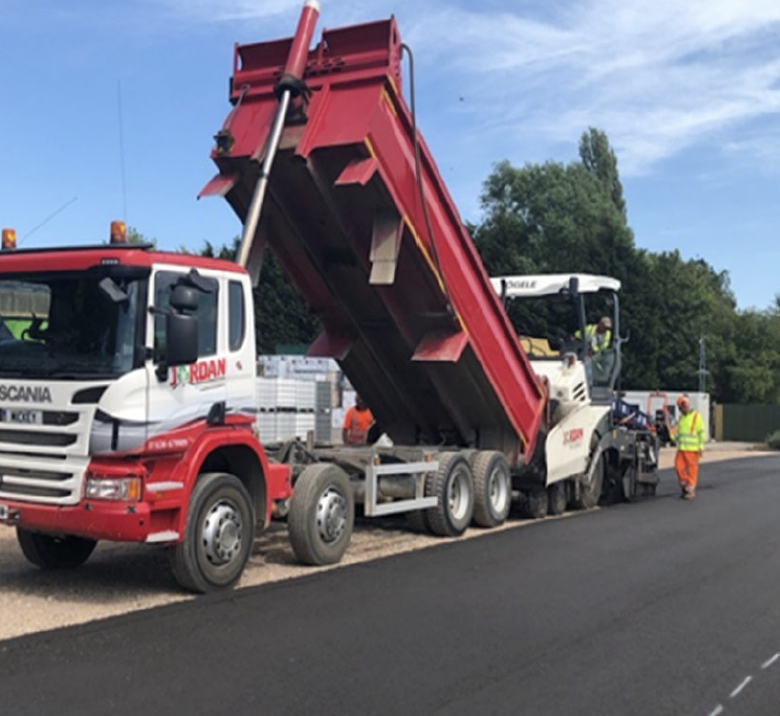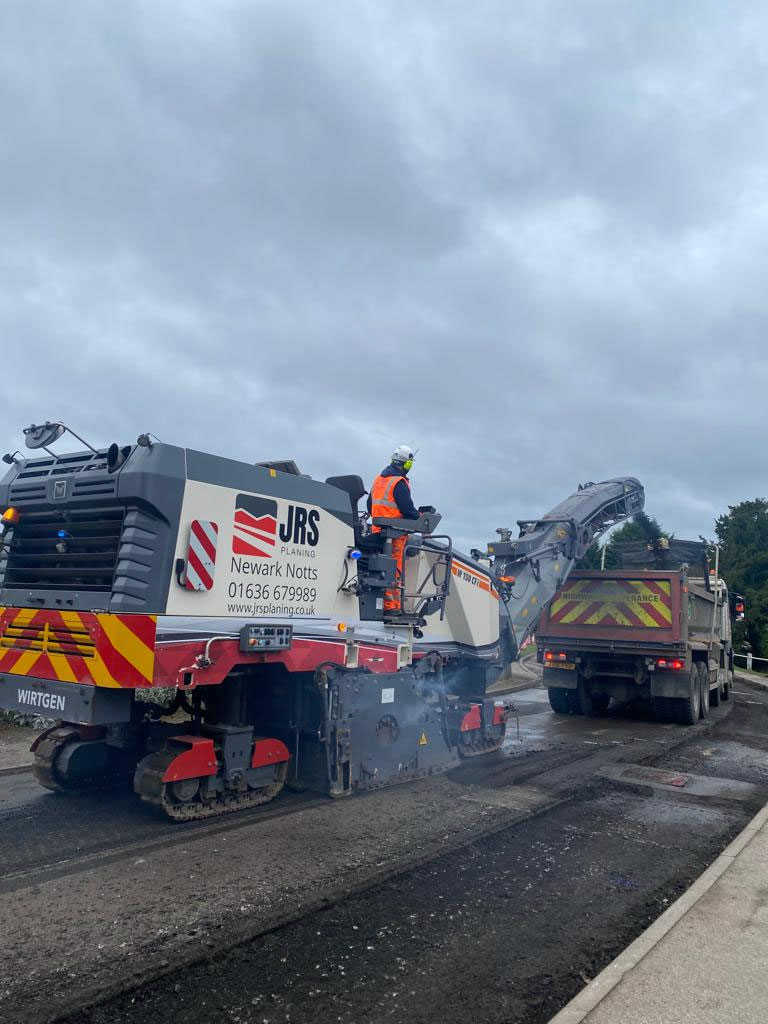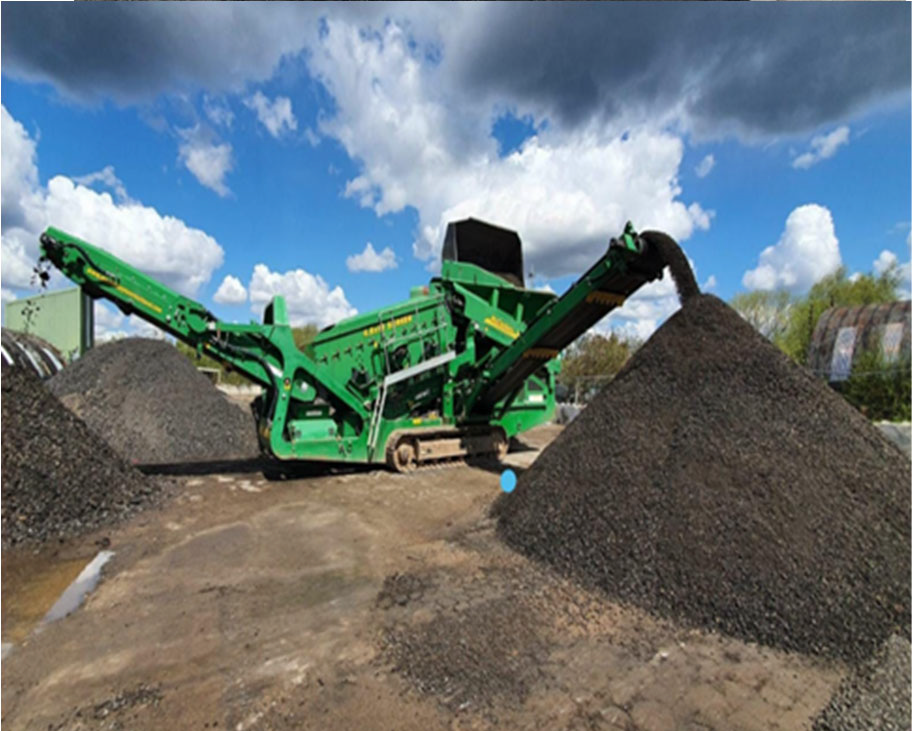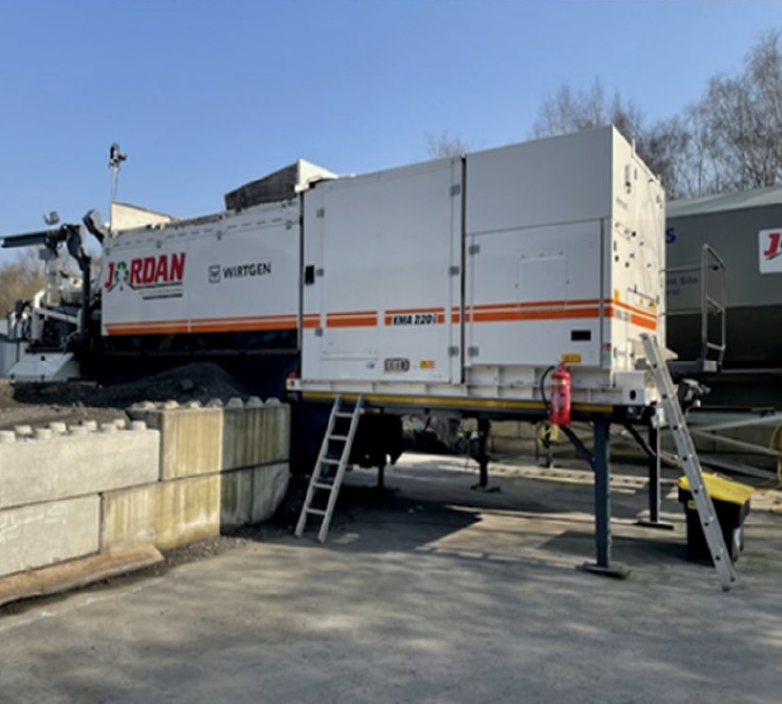The Problem
Due to its importance to the local area; most repairs have been confined to the top surfacing layer which can generally be repaired overnight. Consequently, the deeper layer (Binder and Base Course) has rarely been removed. This deeper layer dates back to 1967 and contained Tar Bound material.
Road Tar was utilised in all pavement layers including surface dressing up until the mid‐1980’s. Road Tar is a complex mixture of Hydrocarbons; some of these have been shown to be carcinogenic, others are toxic to aquatic life, and some are both.
The usual approach to Tar bound material is to remove it from site as it’s classed as hazardous/special wastes. This is an expensive operation involving transporting the material to a licenced tip and results in the material being added to landfill.
The Solution
Early contractor engagement by Jordan Surfacing and a strong commitment from the Local Authority to deliver a low carbon scheme led to the development of a low carbon pavement solution. Jordan Surfacing agreed that full recycling of the existing carriageway was both the greenest and most costeffective solution. All the existing TAR bound material would be recycled back into the new carriageway, using JRS Re‐Cycler FOAM Solution. This would be batched on at their local facility at Boughton to minimise vehicle movements, increase daily volumes and reduce the schemes carbon footprint.
The pavement design consisted of a 100mm thick inlay treatment, 60mm JRS Re‐Cycler FOAM and 40mm of asphalt surfacing. This treatment encapsulated the existing TAR bound material reducing waste to landfill, lower carbon footprint and overall cost reduction to the client.
The Benefit
Safety in construction
Allows the use of a colder mixed material as opposed to traditional hot mix asphalts. This presents a material that can be handled and compacted at a much safer ambient temperature. This will also help reduce the asphalt fumes on site which the work force become exposed to during the works.
Technical
Use of JRS Re‐Cycler FOAM uses 92% recycled aggregate in a cold recycled material, in accordance with SHW Cl.948, which is compliant with hot mix asphalt stiffness values.
This Cl.948 material will therefore allow a pavement solution to be achieved which has the capabilities to withstand heavy traffic loadings, and also the quality‐controlled manufacturing that is required.
Programme
Potential to improve programme efficiency by using local production techniques and minimising the logistical risks of bringing hot mix asphalt from external batching plants, which has the potential of being impacted if there were traffic delays or issues on the wider network during critical laying times.
Budget
Reduction in the quantities of raw imported materials being required in the pavement layes when compared to a traditional fully flexible hot mix pavement solution.
Reduction in the disposal costs of recyclable material, and bituminous material containing U2 Coal Tar Bound Material, which can be used within the cold ex‐situ recycled Cl.948 material, using the established best practice with the Environmental Agency’s Regulatory Position.
Environmental
Reduction in Carbon by circa 48% against hot mix asphalt, reduces the amount of regular vehicle movements attending site in order to deliver imported raw material for the duration of the works. This will help reduce impacts on traffic and potential delays these operations could create to the surrounding highway network. Allowing the use of cold asphalt technologies has the potential benefits of reducing energy consumption.
Innovation
By allowing the waste material (including Tar Bound) generated from the scheme to be recycled rather than removing from site to tip/landfill. Making use of recycled material in this manner will bring significant reductions in the amount of imported raw materials required.




